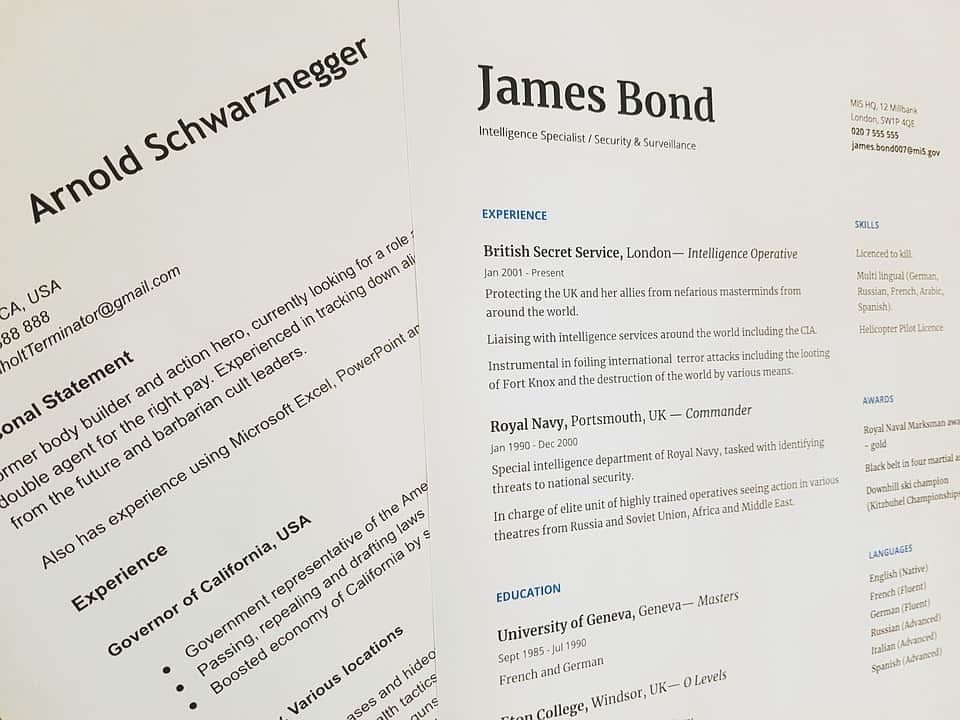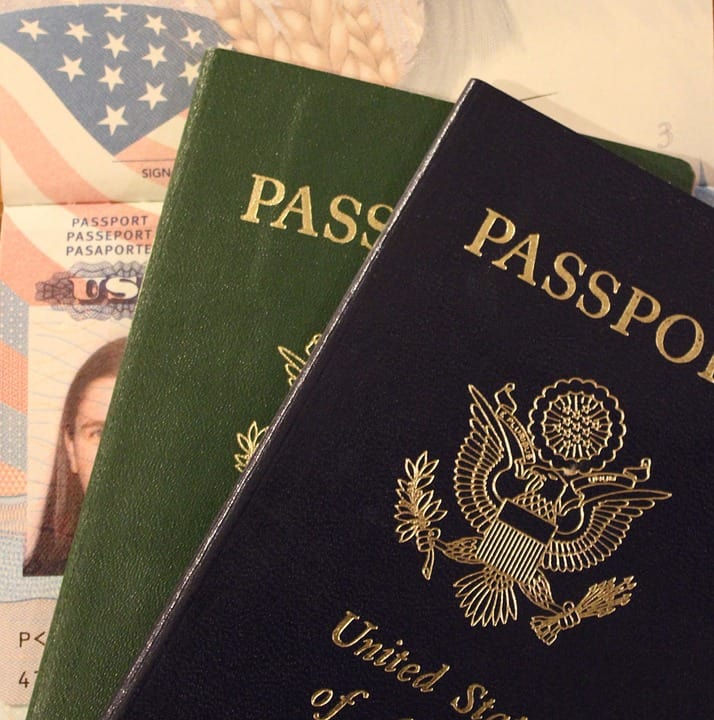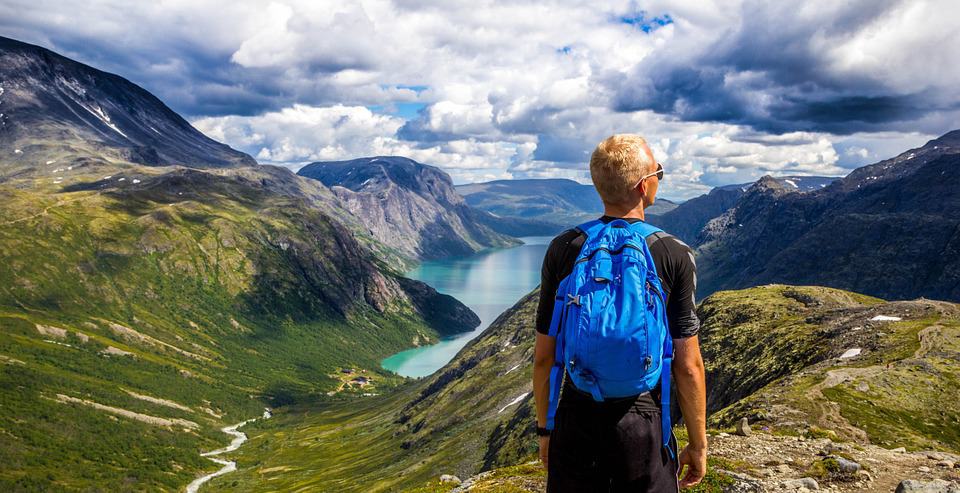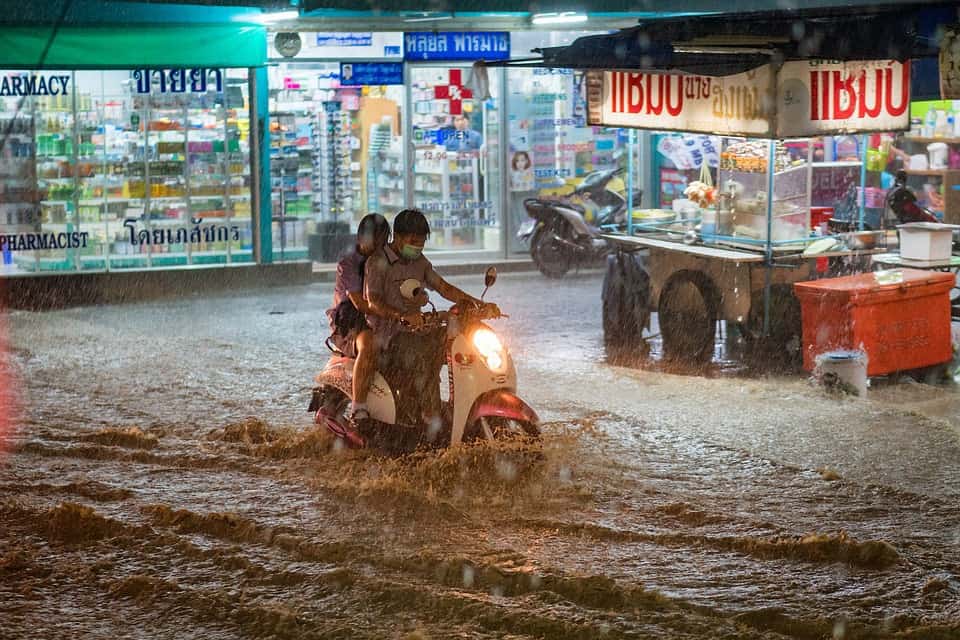Want to be a digital nomad but feel like the world is throwing every possible obstacle in your way? Relax, you can get this done even if it takes a little time. I am a 44 year-old nomad and I’ve been doing this for 20 years or so, now. My partner is a much younger nomad at the age of 23. She’s doing just fine too.
I’ve spoken to a lot of nomads over the years and even, before I stopped using social media, read about them too. Each and every one of them has had to climb a couple of small mountains to get to where they wanted to be.
This is good for you because a.) it means that no matter your situation, someone else has already been there and b.) whatever it is unless you need a cure for incurable cancer, it can probably be overcome.
So, let’s take a look at things that could stop you from becoming a digital nomad and more importantly, let’s look at how you overcome them.
Table of Contents
The Biggest Digital Nomad Deal Breaker Of Them All: Money
I have seen a lot of amusing advice on finance for digital nomads. Much of it given in the best of spirits but with very little thought for “the real world” of people. It all reads as if it came out of a Guardian column. Sensible but impractical.
Let’s take a closer look at finances and how you might get them to work.
Obstacle 1: Debt

If there’s anything that shouldn’t stop you from leaving home – it’s debt. Many people will encourage you to repay your debt and to negotiate with your creditors before you leave to get this done.
I won’t.
The power your creditors have over you is directly related to their ability to strong-arm you. When you are in your own country, drowning in debt, they hold nearly all the cards. They may negotiate a little but if they don’t like what you have to say – they can always force you into bankruptcy or even, in some instances, garnish your wages to get the money out of you.
If you’re on an unnamed tropical island, however, with very little intention of sharing exactly where – that power is gone. Now, you can negotiate with your creditors knowing that if you want to, you can always walk away from the table until a more convenient moment comes up to get a better deal.
Debt is your responsibility, of course, but the debt industry in the West is designed to get you hooked and extract as much cash from you as possible. All the while, pretending to be acting in your interest.
There are large sums allocated, by creditors, to discount debts, waive debts, etc. based on the strength of your negotiation. These sums are part of the system precisely because the system is ripping everyone off.
It is irresponsible to flee from your problems entirely. It is personally responsible to get the best deal you can on your debts. Feel free to tell your creditors you need them to suspend the interest and give you a year or more to make your next payment – they’re not going to find you in a hostel in Cambodia and make you pay.
The good news is that if you move to somewhere with a lower cost of living but retain similar earnings as you make now – it will be easier to pay off your debts overseas. Debts should not stop you from moving.
Don’t worry about bankruptcy at this point. Creditors only tend to move to make you bankrupt if they think it will get them paid. With you out of the country – it won’t.
Never forget that debt is a civil, not criminal matter (with the possible exception of tax debt) and you are free to negotiate the terms at any point. You cannot be arrested, in the Western world, for non-payment of debt unless the debt was incurred fraudulently (e.g. you never intended to pay at all).
Note: Student loan debt is a particular pain in the bum. You can’t negotiate with student loans companies and you can’t even go bankrupt to clear the debt. Sadly, you also can’t hand them your useless piece of paper from the university and call it quits. However, student loan debt is also next to impossible to enforce while you’re out of the country (unless the law changes) and that means, you can certainly worry about how you’ll pay it back without paying it back for a bit.
Note: Even more importantly, some people imagine that there is a 7-year expiry date for debts. That if you can get away without paying – your debts are written off. This is not true. The enforceability of a debt may be harder without communication between you and the lender after 7 years but there is no magic reset button. If you don’t pay your debts; they’re still your debts. So, do get them resolved while you are overseas or risk coming home to face them and the interest you have accrued.
Obstacle 2: Mortgage Arrears

If you’re behind on your mortgage you may lose your home. It depends on how far behind you are and how much equity is in your home as to whether this matters.
Yes, mortgages are a special class of debt. That’s because they’re secured on a home that you don’t own (the bank does) but in which you may have some stake.
If your equity is less than the arrears. You may be best off negotiating with the bank to sell the property and for them to wipe the difference.
If it’s more – you ought to sell the property, pay off the mortgage and bank the rest. It’s money that will get you started overseas.
If things aren’t that bad – you might be able to rent your home out to pay off the mortgage debt and maybe even give you a little income while you’re off being a digital nomad.
Whatever you do. Don’t let this keep going. The earlier you deal with mortgage debt, the more likely you are to walk away with money in your pocket or at least even. There’s no point in leaving mortgage debt behind; they can still take the house.
Obstacle 3: You’ve Got No Money To Get Started

How much money do you need to be a digital nomad? Well, it depends on where you’re going and what you’re going to do.
If you have a remote job, freelance work or a business you can run remotely that’s already providing you with an income – the answer is “not very much”. As long as your income will cover your living expenses in the place, that you’re heading to, all you really need is the cost of a flight (and a passport if you don’t have one) and possibly a visa.
If, on the other hand, you’re dreaming of using this time to start your own business (we think this is a bad idea but it’s your call) without working then you’re going to need a little more on hand. If you intend to make your money online – you ought to be looking to take a year’s living expenses with you (because that’s how long, it’s going to be before you make more than a few bucks online).
That means you’ve got to start saving.
Saving means giving up little things and then putting the money in the bank for most people. Quit your daily Starbucks habit and you’ll have $5 (or more) each day to tuck away in your digital nomad fund. That’s nearly $2,000 a year saved. From cutting out a single coffee.
Plus, if you’re moving overseas you don’t need the latest fashions (which won’t be fashionable in your destination), computer games, etc. so stop buying them and sock that money away.
It’s not easy saving money for many people but it’s the only way out. Make sure you understand that this is short-term pain for long-term gain.
Obstacle 4: You Keep Buying Crap

I hear you on this. I am guilty of buying more than I will ever need of just about everything. I have thousands of albums, computer games, books, audiobooks, etc. and I still keep buying more.
Or actually, I still kept buying more, then about a year ago, I stopped. I realized that I didn’t need any more stuff and that it was preventing me from doing things that I would enjoy more.
Buy not buying crap, I can go out more, travel more, treat my girlfriend to stuff more often and it wasn’t a painful transition.
Put yourself on a one month “only essential spending” diet. If you don’t need it – that is it’s an essential purchase that you are going to use right now; don’t buy it. It’ll be hard at first but if you stick to it – by the end of the month, it won’t be hard to continue.
If you want more cash – can the crap. You’ll be delighted that you did in a few months’ time. I promise.
Obstacle 5: Emergencies

Not so much as a present obstacle but an obstacle you are going to encounter somewhere at some point in your digital nomad life.
An emergency fund is essential… or maybe not.
Assuming that debt wasn’t your big problem when you left home; the best emergency fund, if you don’t have one now, is an emergency credit card.
I hate credit cards. Loathe them. They are designed to get you working long extra hours to pay for things you never really needed.
However, if you can find one without an annual fee and a decent limit. It’s your perfect, “if everything turns to shit”, fall back plan as a digital nomad.
If, however, you have debt – then creating an emergency fund ought to be a priority. Open a bank account in your new country (not with a bank affiliated to your own or your own country) and start saving as soon as you get there. You want enough money to get home and, ideally, a month or two’s living expenses. That’s the perfect emergency fund.
You might never use it to go home. It might be used to replace your Macbook when you drop it in an airport lounge and someone’s child walks all over it. But, that’s the kind of fund you need. Make it your first priority when you land if you don’t have a credit card to fall back on.
Obstacle 6: Subscription Services

Netflix, Amazon Prime, Audible, HumbleBundle, etc. they all add up pretty fast and the truth is – unless you are using a subscription for work, you don’t need it.
The biggest saving in modern life can be had when you go through your bank statements and cancel every non-essential subscription service.
I did this recently and saved $150 a month! And I’ve been living overseas for years. Back home, I imagine things would have been much worse.
Hidden Bonus 1: Your Credit Cards May Have Free Money On Them
This isn’t an obstacle. It’s a bonus. If you have a rewards scheme affiliated with your current cards – you may have a ton of Airmiles (or points that can be converted into Airmiles) laying around already. Find out.
If you do, that can keep the cost of your flights to a minimum.
Hidden Bonus 2: All That Crap You Bought Might Have Value
You’re not taking everything you own with you to another country as a digital nomad. It’s time to work out what you’re not taking and see how much you can sell it for. You may be pleasantly surprised to find that a lot of your stuff is going to make your “digital nomad launch fund” much easier to make.
The Second Biggest Deal Breaker To Becoming A Digital Nomad: No Remote Work

This is really just the first deal-breaker restated. Once you’ve got enough money to leave, you also need enough money to live on when you get there.
This is also the part when the “digital nomad lifestyle gurus” start telling you not to worry about it – get on a plane, learn what you need and start making a living online when you get there. This is, possibly, the worst advice on earth.
You see while moving abroad gives you much better leverage with your creditors; it puts you at a huge disadvantage for finding an employer (for remote work), clients (for freelance work) and even for the kind of contacts you need to be a successful entrepreneur.
The best place to get earning to fund your digital nomad life is at home.
Now, I won’t pretend there aren’t exceptions to this rule (I am one of those exceptions) but exceptionalism is a pretty bad thing to base major life choices on. The majority of successful digital nomads that I have met, and which have been interviewed in the countless digital nomad research projects I’ve been involved with – have one thing in common: They had their income sorted out before they left home.
Obstacle 7: Finding Remote Work

This isn’t as hard as it once was but let’s not pretend that it’s completely straightforward either. Almost everyone, given the choice, would rather have a remote job than one which chained them to a desk for a fixed period every day.
Sadly, despite the “digital revolution” employers are not much more trusting than they were in the pre-internet days and most jobs still come with desk shackles.
However, if you check out our “find your first digital nomad job” post there are plenty of places that are hiring remote workers.
Something that other sites gloss over, however, is that many remote jobs have terrible pay. Terrible. I’d always advise that skilled workers freelance rather than discount their salaries for a remote job. It’s your call and some argue that a lower cost of living means you need less. But why get paid less than you should so that somebody else can make more profits?
You ought to get paid more for being remote. You’re saving the employer on lights, heat, desk space, etc. and yet, they’re still trying to pick your pockets and acting like they’re doing you a favor.
Obstacle 8: You Have No Skills To Find Work

There is no end of free and low-cost training on the Internet. If you genuinely want to learn new skills, then you can.
Udemy is one of the most popular hubs for cheap training online. Our rule of thumb is that you should never pay more than $20 for one of their courses and you shouldn’t have to – they have at least 2 sales a month in which all their courses are discounted massively. Do your homework though before you buy anything – the quality of training on Udemy is as variable as the topics they cover.
Coursera is also good. It’s a source of university-level education. The courses can be accessed, mainly, for free but for a small fee – you can get a university certification for the work you’ve done. If you want some paper to impress employers, this can be a great way forward.
Some professional qualifications are expensive. Degree courses are expensive. But learning skills without these pieces of paper? It’s cheap and easy. If you want to get skilled in something, Google how to learn it and hunt around for a cheap and decent quality course. Then do it.
Obstacle 9: You’re Afraid That You Lack The Discipline To Work Remotely

I can completely relate to this. You’re going to be in awesome new places, quite possibly with a brand new partner (you don’t have to be a lonely digital nomad, anywhere) and you’re going to have to spend time at the desk working.
It is fair to say that about half the people who go remote end up back in desk jobs because they don’t have the discipline to get things done. But… I am terrible for getting things done and I’ve managed to do it for 20 years. It’s not that hard. Just remember, you have to work in order to have fun. Do the work first. Then have the fun.
Obstacle 10: Your Resume/CV Isn’t Great

Everyone has to start somewhere. It’s worth remembering that you can choose how you present yourself on paper. Got gaps in your employment/career history? Then move to a non-chronological CV/resume – in a world where age discrimination is illegal, these CVs are perfect for disguising that you are 72 and looking for work and they’re also perfect for digital nomads covering up the 3 years they spent smoking pot in India.
In Third Place: Possible Logistical Issues In Nomad Life
This is much, much less of a problem than money or work. Logistics can be a pain in the backside but they’re not real deal killers for moving overseas and enjoying a life of freedom. They might, however, be an excuse if you’re not really all that keen to get moving.
By the way, if you’re not that keen to leave – you might want to ask yourself why you’re trying to leave. Digital nomad life is not for everyone. You don’t have to be a digital nomad if you don’t want to be.
Obstacle 11: The Dreaded Visa

Visas aren’t normally much of a problem as long as a.) you come from a Western nation with a strong passport and b.) you’re not trying to go somewhere insanely obscure to prove a point.
Thailand and Indonesia are the two most popular overseas destinations for digital nomads. Most passport holders can spend a month in either country without even needing a visa. Just turn up and get a visa exemption.
Longer visas for both countries are available from their embassies (and sometimes consulates). The application processes are pretty simple. The costs are low. It doesn’t take very long to do.
Visas can become more complex if you want to settle down somewhere for long periods of time but for short stays? They’re normally easy and straightforward.
Obstacle 12: Your Stuff

So many people seem to struggle with this. They’ve accumulated a lifetime’s worth of stuff and instead of getting rid of it. They hold on to it. They rent out storage at home or store it at a relative’s (the relative is normally OK with this for 6 months but much less happy when the stuff is still there 10 years later).
My strongest recommendation is that you sell off everything you’re not taking with you. Any small sentimental items you can store at a family member’s house and that ought not to take up more than a suitcase’s worth of space. Get rid of everything else.
You won’t miss it. You don’t need it and you’ll get some cash to make your early nomad life easier.
If you really must store stuff – make sure that you’re putting things in a dehumidified environment or you may come home to find it is all now covered in mold.
Obstacle 13: You Don’t Know How To Pack

Less is more when it comes to travel. There is very little that you can’t buy anywhere in the world today. I’ve been to tiny Khmer villages in the middle of nowhere where you could pick up shampoo, conditioner, toilet roll, etc. you may not be able to find your favorite brand, but you can get nearly everything, everywhere.
There is one exception to this rule. If you are a large Westerner (male or female) and you’re heading to Asia be warned: buying larger sized clothes and, in particular, shoes can be a real challenge in some places. Not all places but enough places that you want to make sure you have some underwear and more than one top.
We will put together our own packing list at some point. You’ll be shocked at how much we lug around with us (thus breaking this rule) but when I travel on my own and I am looking to cover some ground – I have a small suitcase, a computer backpack, and a camera bag. More than half the weight I drag around is in tech kit for my work.
Otherwise, I carry 2 pairs of shoes (wearing one), 2 pairs of jeans (wearing one), 1 pair of shorts, 5 pairs of socks, 5 t-shirts, 5 lots of underpants, and a hoodie or a jacket in case it gets cold (which doesn’t happen often in South East Asia). I also carry shampoo because I need a specific medicated brand, or I end up with psoriasis. Everything else, I buy when I get there.
Oh yeah, suitcase not backpack/rucksack. Backpacks are possibly the most over-rated piece of equipment in the digital nomad community. Suitcases are more secure. They’re easier to drag around (as long as you buy one with wheels). They fit better in storage compartments in planes, buses, etc. Suitcases for the win.
But all you must-have when you arrive are the tools of your trade, a passport, a valid visa and somewhere to stay. You can sort anything else out with a little effort when you arrive. Don’t panic if you forget something.
In Fourth Place: Family Issues For Digital Nomads

For some people, this is going to feel like the biggest issue facing their digital nomads for others, it’s a non-issue.
In reality, family issues are not blocking issues unless you want them to be. It’s that simple. So, they’re fourth on our list because they are important to people but they’re not going to stop you from getting on a plane.
Obstacle 14: My Parents Don’t Want Me To Leave

- We freely acknowledge that many people are closer to their parents than we, the writers, are. But, we also acknowledge that if you’re thinking about becoming a digital nomad – you’re over the age of consent and you’re basically an adult.
Cutting the apron strings is a decision that you have to take to be free. If you can’t, that’s cool – it just means your biggest emotional priority is your family relationship and not travel. Everyone is entitled to choose what works for them including not becoming a digital nomad.
So, if you’re going to go – you need to explain to your family that you will miss them, that their views are not unimportant, but you want to live the life you want to live. You can reduce the impact at this point by explaining what you’re going to do to keep them informed about your travels.
- Daily Facebook updates.
- Weekly e-mails.
- Regular blog posts.
- Postcards from new places.
- Skype calls on weekends.
This isn’t rocket science. If you want to leave home, you should but if you want to reassure those you’re leaving behind; communicate with them regularly.
Obstacle 15: You’ve Got Kids

This is easy to handle. Bring your kids with you. Seriously. Your kids will not die from being schooled overseas. They will learn new languages, learn from new cultures and have a ton of fun.
It is more expensive than traveling on your own but if you’re going to a lower cost of living location and maintaining your salary, so what? You’ll break even but in a different way.
We’ve got an upcoming post on taking care of kids as a digital nomad with lots of input from those already doing it.
Our biggest piece of advice for this, though, is simple – travel slowly. Try to keep your kids in the same place for a school year and then move on.
Note: The author of this post spent most of his early life in a variety of different boarding schools. Changing schools on a regular basis will not kill your kids or damage their education. After a while, it leads to being able to make friends quickly and broadening their horizons. Trust me on this. I’ve been there.
Obstacle 16: Your Partner Isn’t Sure That Being A Digital Nomad Is What They Want To Do

We don’t give relationship advice, but we think if your partner doesn’t want to go – you have four choices.
- You stay at home to keep your partner happy and to keep your partner.
- You go but for a short period of time and come home to keep your partner happy after that.
- You persuade your partner to give it a try and agree to come home if they hate it after a few months.
- You dump your partner and go anyway. You only get one life and you don’t want to spend it in the same town. There are plenty more fish in the sea.
They’re all brutal choices (even if 4 is the only one that sounds brutal). Relationships are about compromise. So is life. But… it is your life.
I faced this conversation with a girlfriend about my ambition to go to university. She dumped me because she wanted to stay at home. 20 years later she wrote to me to tell me she regretted not leaving home and seeing the world. You can’t win them all.
I am not sorry I went to university and I am not sorry about being a digital nomad. This is how the world works. Make your choice and stick to it. You don’t have to justify yourself to anyone when it comes to personal happiness.
Bringing Up The Rear: Miscellaneous Obstacles To Becoming A Digital Nomad

Nothing in this section is insurmountable for anyone. In fact, most of these problems in becoming a digital nomad aren’t so much problems as they are our own fear of the unknown getting in the way. In short, most of these are the excuses we make to avoid taking the plunge.
Overcoming them is easier than some of the other stuff on the list but our fears are our fears and it’s quite natural to have them and we all overcome them (or not) in our own way.
Obstacle 17: Your Friends And Colleagues Think You’re Mad

My friends didn’t think I was mad when I left and I no longer had any colleagues as I’d quit my job a month before I decided to pack my bags for “the world”.
This isn’t common. In most cases, people aren’t just going to get some flack from their family for becoming a digital nomad – they’re also going to get it from their friends and colleagues. “How can you give up your career like that?”, “Won’t you miss your friends?”, etc.
The best way to deal with these objections is to be 100% truthful. “I am not giving up my career, I am taking control of it. Yes, it’s a risk but what career move isn’t a risk?”
“Of course, I will miss my friends, but I am looking forward to making new friends. I’ll come back at some point and until then there’s always Facebook. We don’t have to stop being friends unless you want us to.”
Your life is your life. You don’t owe anyone an explanation for what you do but if you want to avoid putting noses out of joint be direct, be honest and don’t let anyone deter you from doing what is right for your life.
Obstacle 18: You’re Afraid To Fly

Talk to your doctor. You’re not alone in this. Millions of people are afraid to fly and millions of them fly anyway. I am not afraid of flying – I was flying on Air Nigeria when I was a small child, it’s impossible to be afraid of flying after surviving flights out of Lagos in the 1970s.
But if you are, you can get support for it. Your doctor may direct you to a counselor or they may just prescribe a mild sedative so you can sleep through the flight. (I find I fall asleep as soon as the plane starts moving – no sedatives required).
The truth is that flying is much safer than walking, driving a car, being on a boat, and it’s even safer than traveling by rail (which is also very safe).
This is a real fear and unlike the other things in this section – it’s not an excuse but you can deal with it.
Obstacle 19: Your Partner Says “No” At The Last Second

I left my wife in China. She’s Chinese, so I didn’t abandon her without support – she’s still happily hanging out with her sister, in fact, as far as I know. But, she didn’t want to travel and I couldn’t stay in China forever. In the end, the only thing I could do was leave.
Relationships are only good for you when they make you happy. When they don’t even if you love the other person – it’s time to let it go.
Get on the plane if that’s your deepest desire. Sure, you’ll be sad for a bit but then you’ll meet someone else. I met Megan in Cebu. We’re happy and we’re coming up to a 2 year anniversary with hopes for many more to come.
Obstacle 20: You’re Afraid To Be Alone

It is a bit of a shock when you turn into a digital nomad. You leave your friends, colleagues, family, etc. at home and many of us also leave our partners behind. You’re going solo and that can be incredibly frightening.
I am going to be blunt about this – if you struggle to make friends at home, you’re probably going to struggle on the road too. You don’t turn into another person by getting on a plane; if you want to be different, you have to make changes.
I had a hilarious conversation about this in a Facebook group with a Millennial. She said it was impossible to make solid friendships as a nomad and this was why she was going home. I pointed out that this wasn’t true (I have made many) and that she probably needed to work on her social skills if she wanted to make friends.
This, of course, sparked denial, “My social skills are awesome.” Even though, her own evidence said they were not. If you’re not making friends, it’s not the 7 billion people on planet earth who are at fault – it’s you.
So, let me tell you the absolute basics of making friends, (I am going to do a longer post on digital nomad loneliness and how to beat it later):
- You need to learn to initiate conversations with people even people you might not talk to at home. Your comfort zone is no longer your comfort zone.
- You need to learn to listen more than you talk. Many Millennials appear to think the only interesting topic of conversation in the world is themselves. This is not true. You can’t connect with people during a monologue.
- You need to go to places where people are being social. It’s creepy to strike up conversations with random people in supermarkets. Bars, coffee shops, social clubs, sporting clubs, etc. are where people go for conversation. Go there.
- You need to stop trying to impose your values on others. This doesn’t mean “go hang out with racists” but it does mean put your laundry list of “must conform criteria” down and realize that the joy of other people is their differences not their similarities. Why are you traveling if all you want to do is hang out with people just like you? Stay at home for that.
- Most of all – you need to take a genuine interest in other people. In the famous book, “How to make friends and influence people” they recommend faking this. I don’t. People are fascinating. Take the time to find out how the other person is truly unique. They’ll love you for it.
This is the basis of making friends absolutely everywhere in the world. It isn’t hard. It does, however, take a little time.
This is one of the many reasons that digital nomads tend to slow travel. It is next to impossible to form lasting and meaningful relationships if you are changing your location every week (or less). In general, you (and the person you want to be friends with) need multiple exposures to each other to decide whether or not you’re going to be friends.
Obstacle 21: You’re Not Comfortable With Yourself

Even if you are a naturally social person and find making friends easy; you may find that being by yourself is an enormous chore. I think there was a time when I was like that, particularly, in my 20s and early 30s. Nowadays, I love being by myself. In fact, it’s the best time – when you can just sit and think about what you want from life.
However, if you can’t handle this – don’t worry, you never have to be by yourself if you don’t want to. Co-living (an expensive term for “flat sharing”) is available and for less money so is traditional flat-sharing (though do be careful about who you choose to share with).
There’s also co-working if you can’t get through the working day without at least one water cooler conversation.
If you’re in a place without co-working, go find a café or a bar to work from. There is never any need to be alone.
Having said this – you might also want to work on getting comfortable with yourself. Meditation (or mindfulness which is pretty much the same thing) can really help you learn to be around and enjoy your own company.
Obstacle 22: You’re Convinced You’re Going To Be Homesick

Not going to lie to you – we all get homesick at times. I’ve not set foot in the UK in more than a dozen years but every now and again; I get wistful for home. The smell of a Spring morning on the Yorkshire moors, the taste of a great pint of British Ale, the availability of good cheese, that kind of thing.
In the main, it passes. Homesickness is hard to hold on to when you’re experiencing what life has to offer.
If it doesn’t pass and you’ve been away for months or years? Go home and remind yourself why you wanted to leave. If you decide to stay home, that’s cool too. Being a digital nomad is an option and you are free to stop any time that it makes you happy to do so. Remember that.
I have known a couple of people who’ve become insanely homesick in the first few days of being away as a digital nomad and kind of withdrawn into themselves. This is a terrible strategy. If you want to see what life is like somewhere else in the world; you have to open yourself up to that life – not cry over the life that you just left.
In my first job overseas, it wasn’t uncommon for people to walk out of meetings in their first week, go grab their stuff, go to the airport and go home. This is pretty sad stuff. If you hate it after 6 months, at least you know that you hate it. If you quit after a week, you never even tried.
Obstacle 23: Will There Be Racism?

If you’re from a Western nation, you probably know that immigrants are not always treated well by society. Fortunately, for you – this isn’t the way that all of the rest of the world works, at least, not yet.
There is racism in every society, culture, and creed on the planet. But in most places, nobody is going to show you their racist side. They’re going to smile and take your money.
Having said this. The darker your skin color; the more likely you are to encounter racism everywhere on earth. Yes, even in Asia, South America, and Africa, light skin tones tend to get an easier ride.
If you do encounter it – shrug it off and walk away. Then forget it. Racism is an atypical experience (I’ve dealt with one, possibly two, racist incidents in 20 years in Asia on which I’ve been on the receiving end) not the norm.
Obstacle 24: Fears For Personal Safety (Everyone) As A Digital Nomad

I won’t pretend that everywhere in the world is equally safe. I will, however, say this – outside of active combat zones, nowhere needs to be particularly unsafe unless you choose to take foolish risks.
Safety, apart from extremely bad luck, generally comes down to common sense (particularly for men).
- Don’t go out late at night and walk through areas you don’t know are safe
- Don’t carry valuables in public areas in a noticeable way
- Don’t be afraid to wear a backpack on your front in crowds (it’s easy to steal from a backpack on your back in these situations)
- Do be polite to everyone you meet
- Do remain calm if things become heated for others
- Don’t carry a weapon of any kind
We’ll put together a larger guide on this at a later date but worries about personal safety shouldn’t stop you from traveling. In 20 years in Asia, I’ve only two incidents to relate and they were both very minor.
Obstacle 25: Fears For Personal Safety (Female Travelers) As A Digital Nomad

Women travel the world safely all the time. However, it would be churlish to pretend that there aren’t additional concerns for women digital nomads.
It is a good idea to read up on the dress code, customs and culture of the countries you intend to spend time in. It’s also a good idea to comply with those things wherever possible.
Much of the developing world has not had a feminist revolution. That doesn’t mean that you’re going to have a bad time on the road, but it does mean you should take sensible precautions to ensure your safety.
I’ve known expat women in Nigeria, Saudi Arabia, etc. and they’ve all been fine.
If you feel things might go wrong wherever you are – seek help and support immediately. Don’t be afraid to walk into a store or a hotel front and ask for that help.
If you can find other women in your destination in a similar situation to yourself; ask for their advice on how to stay safe.
Obstacle 26: Fears Regarding Terrorism

You cannot plan for terrorism. There’s nothing stopping a terrorist from attacking a shopping mall in your home town, but they probably won’t.
In fact, no matter where you travel and how far you go from home – terrorists probably won’t interrupt your day. Terrorism is incredibly rare even in “terrorism hotspots” such as Islamabad in Pakistan.
You’re more likely to win the lottery than you are to have to deal with terrorism in your life.
Obstacle 27: Concerns And Fears Regarding General Health

The developing world does expose you to slightly more health risks than being at home; though if you continue to eat healthily and exercise, you’re no more likely to get sick overseas than at home.
Always wash your hands before eating. Be wary of salads (often washed in dirty water with unclean hands holding them). Make sure food is cooked through. Don’t visit TB wards. Take precautions to keep the mosquitos off. You’ll be fine.
Seriously, you’ll be fine.
However, it’s a good idea (for short journeys) to have travel insurance in case something does go wrong and if you’re leaving for a long time – health insurance is essential.
We talk about the difference between travel insurance and health insurance in another article here – it’s important.
Obstacle 28: Concerns And Fears Regarding Vaccination

There were two miracle inventions of the 20th century when it comes to health. Antibiotics and vaccinations.
In a terrifying development – the world may soon no longer be able to use antibiotics because of growing immunity of bacteria to antibiotic treatment.
In an even more terrifying development – stupid people have started to advise people not to use vaccinations.
Let me spell this out for you. If you’re told to get vaccinated for a place you visit – get vaccinated.
It is worth finding out whether you can get the vaccinations cheaper in your destination (if you’re traveling from the West to Thailand, for example, get them done in Thailand – you’ll save a fortune) but get them done.
When people say, “I’ve never had them and never been sick.” You can’t see the liver cancer that Hepatitis B is preparing for them in 20 years’ time.
Do travel. Don’t get sick. Vaccinations are your friend.
Obstacle 29: Concerns And Fears Regarding Unfamiliar Food And Drink

Some people love the thought of trying new food all over the world. Others, find themselves quailing at the thought. Unfamiliar food and drink can leave you feeling terrified if your one of those people.
Let me put your mind at rest. There is almost nowhere in the world outside of war zones and North Korea where you can’t find a Burger King, KFC, Pizza Hut, etc. So, if you don’t like the local food – you’re not going to be forced to eat it.
In my experience, once you start trying local food – you’re going to find things that you love (pick dishes that seem at least a little similar to things you like back home to start with – get adventurous once you’ve established that food is food is food…)
Same goes for drinks.
One thing on drinks: don’t go to countries where alcohol is illegal and drink home-brewed alcohol. At best it will give you the worst hangover of your life. At worst it can send you blind or kill you. Seriously, say “I don’t drink alcohol” when offered this stuff.
Obstacle 30: Worries Over Not Knowing The Language

You can find plenty of pious advice on how knowing the language, or at least some of it, is an essential part of traveling. If that were true – I’d have stayed at home.
I find learning languages incredibly difficult, in the way that many people seem to struggle with mathematics, and while I can get by in French and am reasonably OK at Latin (a dead language) – you wouldn’t want me on a translation team for either.
I can also speak a tiny number of words in German, Spanish, Arabic, Thai, Mandarin, and Cantonese. When it comes to the latter two – I have no idea which language is which because my friend taught me in a Mandarin-speaking area but he’s a native Cantonese speaker.
Shamefully, I’ve spent over 3 years in Cambodia and can’t even count to 5 in Khmer.
Despite this lack of linguistic prowess – I’ve never had any problems going around the world, doing my thing and making friends. That is no problems whatsoever.
If you meet someone who doesn’t speak English; don’t shout at them, it won’t help them understand. Either get your charades hat on and mime what you need or more simply, look for someone who can speak English to help you get your point across.
If you don’t leave home because of worries about the language; you just didn’t want to leave in the first place. (Which is still just fine by the way – you don’t have to be a digital nomad if you don’t want to).
If you really feel you must learn some language – learn to say hello and goodbye, thank you, to count to 100 and the words for left, right and straight on. (I also try and learn the word for beer). That’ll be enough for 99.99% of the interactions you have on the road.
Obstacle 31: Worries Over Making Cultural Mistakes

The world’s most visited country is Thailand. Millions of people each year descend on Bangkok and proceed to make an absolute hash of presenting themselves in Thai culture.
They don’t understand the dress code. They don’t know how to wai (the bowing and hand signaling thing that comes naturally to Thais). They commit endless faux pas literally every minute of the day.
Do you know what happens to those people?
Nothing.
Absolutely nothing.
Sure, they may alienate a potential friend or two but the Thais realize that most foreigners are ignorant of their traditions and are willing to forgive all but the worst transgressions (to a Thai this is either being rude about their monarchy or touching their head and as most people aren’t going to do this, ever – it’s not really a problem).
If you want to be a less ignorant tourist – Google for a list of do’s and don’ts in the culture you’re visiting. Then Google three times more and check that the information is right (or at least appears to be right) before enacting it.
Then get over this fear and book your ticket. You’re going to be fine. Over a billion people traveled last year. Almost all of them were fine too.
Obstacle 32: Worries Over Environmental Impact

This seems to come up a lot at the moment. But, in truth, travel is bad for the environment, but big business is way worse and they’re not going to stop doing what they do. So, why should you?
You can, to some extent, offset your eco-footprint by paying to have trees planted to cover your carbon omissions, by scrapping the use of unnecessary plastics, etc. but in the end, every single human being on the planet has a negative impact on the environment.
Do what you can, which is more than most and don’t let it prevent you from being a digital nomad.
Obstacle 33: Fears That You Are Too Old To Travel

We’ve done a whole piece on this elsewhere on the site. But, in essence, you’re not. Though I do advise you to read the last section of this article carefully because while you may not be too old to travel – it’s possible that your health may/may not interfere with your travel plans.
Obstacle 34: What Will You Do When You Retire?

I am 45 and I have no idea what I will do when I retire. None. I don’t think anyone in their 40s does. The key to retirement is investment and retirement planning.
For this, you want to engage the services of an independent financial adviser (or two) and work out how you want to prepare for the time when you no longer want to work.
There’s nothing about being a digital nomad that gets in the way of retirement planning (though many of the young and foolish may pretend that this is not something they need to think about – that’s what being young and foolish is, it has nothing to do with this lifestyle).
One Last Thing: Health Issues

It’s the last thing on the list because it won’t apply to about 95% or more of our readers but if it applies to you; this may be the one thing that does stop you from leaving your own country (though you can still nomad at home).
Obstacle 35: You Have A Pre-Existing Medical Condition

This can be a real problem because if you want to leave your country behind; you’re still going to need treatment for pre-existing conditions.
For some people, this is no big deal. Asthma is dirt cheap to treat in most of the world, for example. I have multiple allergies and thankfully, for me, allergies are pretty much painless to treat too from a cost perspective.
But other conditions may be much more expensive or even impossible to treat in some places. There are also many countries with strict controls on certain medications and these restrictions vary everywhere.
Insurers won’t touch pre-existing conditions, as a general rule, because they’re in business to make money – they only way they’ll cover pre-existing problems is if you agree to pay more than the cost of your treatment to them.
So, in this one instance – you need to do your homework very carefully. Find out whether your treatment is available in your destination, make sure that it’s affordable and be certain that you understand how to obtain that treatment too. Don’t assume that it will be easy or cost-effective to deal with health issues.
Summary

With the possible exception of having a pre-existing medical condition – almost any obstacle to becoming a digital nomad can be overcome.
The question really boils down to; is this digital nomad life what you really want?
It will always be fine to choose not to be a digital nomad. If, however, it’s what you want – you need to commit and work through the “obstacles” that aren’t really obstacles at all.
Hopefully, we’ll see you in a bar in South East Asia one day. We’re happy to be digital nomads and it’s probably going to stay that way.
